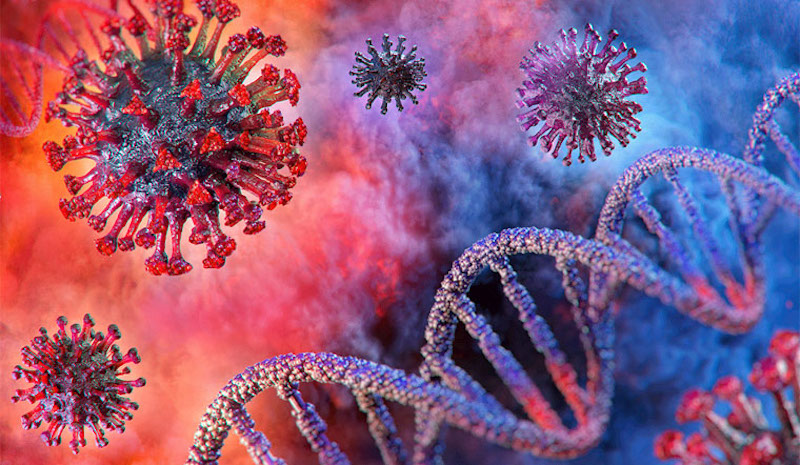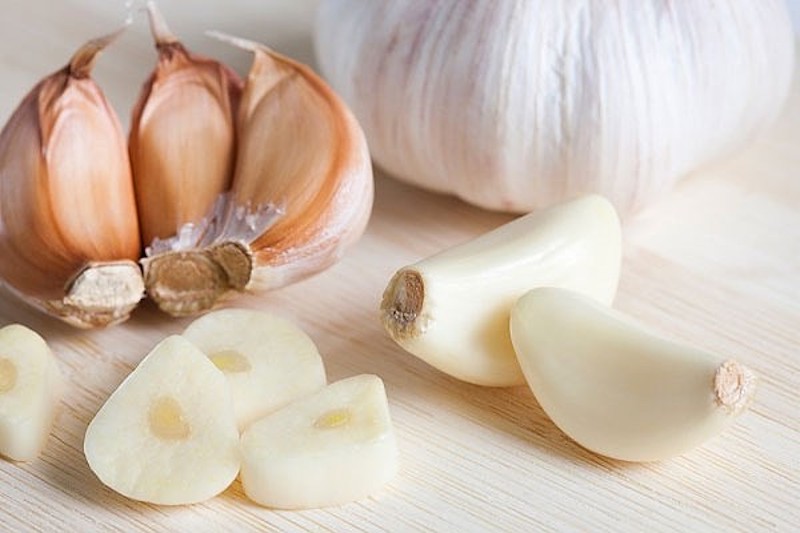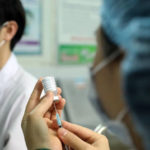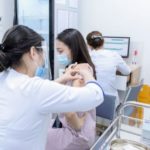Professor Tuan Nguyen has been researching, collecting, and summarizing information from reliable sources regarding COVID-19 prevention. He hopes that this information will help alleviate the confusion and anxiety surrounding the pandemic.

1 Spraying Chlorine or Alcohol Can Kill the Virus
False. Chlorine and alcohol cannot kill the virus inside our bodies. They are only effective against bacteria and germs on surfaces. Using these substances on your skin or inhaling them can be harmful and may cause irritation or damage to your eyes and mouth.
2 Rinsing Your Nose with Saline Solution Can Prevent COVID-19
There is no scientific evidence that rinsing your nose with saline solution can prevent COVID-19 infection. While it may help alleviate symptoms of upper respiratory infections, it does not reduce the risk of contracting COVID-19.
3 Gargling with Saltwater Can Prevent COVID-19
This is a misconception and is not based on scientific evidence. The World Health Organization (WHO) has stated that there is no proof that gargling with saltwater will protect you from COVID-19 infection.

4 Antibiotics Can Kill the COVID-19 Virus
False. Antibiotics are designed to kill bacteria, not viruses. They are ineffective against viral infections like COVID-19.
5 The Flu Vaccine Can Prevent COVID-19
False. COVID-19 is caused by a different virus than the one that causes seasonal flu. Currently, there is no specific vaccine available for this novel coronavirus.
6 Garlic Can Prevent COVID-19
While garlic has antimicrobial properties, there is no scientific evidence that it can protect against SARS-CoV-2 infection.

7 Hair Dryers Can Kill SARS-CoV-2
False. Hair dryers are not effective in killing the COVID-19 virus. They are not designed for disinfection purposes.
8 Face Masks Can Prevent COVID-19 Infection
While face masks are recommended for healthcare workers and infected individuals, they are not necessary for the general public. Single-use masks may not provide effective protection against COVID-19. Additionally, wearing a mask can give a false sense of security, leading people to neglect other important preventive measures such as frequent handwashing.
9 Only Adults and Youth Are at Risk of Infection
False. COVID-19 can affect people of all ages. While older individuals and those with underlying health conditions may be at higher risk of severe disease, the virus can infect people of any age.
10 Anyone Who Comes into Contact with an Infected Person Will Get COVID-19
False. The risk of infection depends on various factors, including the strength of a person’s immune system. Those with stronger immune systems may be less likely to become infected or experience severe symptoms.
11 Everyone Who Gets Infected Will Die
Absolutely false. The majority of people (97%-99%) who become infected with COVID-19 recover. Additionally, most cases (81%) are mild, and many people experience no symptoms at all.
12 Cats and Dogs Can Spread COVID-19
Research on this topic is ongoing, and findings are based on a limited number of animals. While various species of animals, including cats, dogs, and several types of farm animals, can become infected with SARS-CoV-2, it is not clear if they can transmit the virus to humans.
Experimental studies have shown that several mammal species, such as cats, ferrets, fruit bats, hamsters, racoon dogs, pigs, rabbits, pangolins, and deer mice, can be infected with the virus. Some of these species, including cats, ferrets, fruit bats, hamsters, racoon dogs, and pangolins, have been shown to transmit the virus to other animals of the same species in laboratory settings.
Primates such as cynomolgus monkeys, rhesus macaques, common marmosets, African green monkeys, and baboons have also been used as models for human infection. These primates can be infected with SARS-CoV-2 and develop symptoms in laboratory settings. While laboratory mice could not be infected with the initial strain of SARS-CoV-2, there is evidence that they can be infected with new variants of the virus.
Chickens and ducks, however, do not appear to become infected or transmit the disease.
For further information, please refer to:

13 COVID-19 Is Just Like the Seasonal Flu
False. While COVID-19 and seasonal flu may share some similar symptoms, the mortality rate for COVID-19 is significantly higher, ranging from 1% to 3%, compared to 0.1% to 0.3% for seasonal flu.
14 Thermometers Can Diagnose COVID-19
False. Thermometers can only detect a fever, which could be caused by various illnesses, including seasonal flu. Additionally, COVID-19 has an incubation period of up to two weeks, during which an infected person may not exhibit any symptoms but can still spread the virus.
15 COVID-19 Can Be Transmitted Through Feces and Urine
This is likely false. According to Professor John Edmunds of the London School of Hygiene & Tropical Medicine, when we swallow, we also swallow mucus from our nose and throat, which often contains viruses and bacteria. However, the stomach’s acidic environment typically neutralizes or destroys these pathogens. While viral particles may be detected in feces, they are usually inactive and incapable of causing infection.
16 COVID-19 Will Disappear in the Spring
Some viruses, like the seasonal flu, are more prevalent during winter or in temperate climates. However, it is currently unknown if COVID-19 will behave similarly or survive in warmer temperatures.
17 COVID-19 Is the Deadliest Pathogen Known to Humans
False. While COVID-19 is a serious disease and has a higher mortality rate than seasonal flu, it is not as deadly as other viruses such as Ebola, SARS, or MERS.
18 COVID-19 Originated in a Military Lab in China
This is a rumor, and there is no scientific evidence to support this claim.
For more health-related articles, please visit our Health section.
What Parents Need to Know About COVID-19 Vaccine Preparation and Aftercare for Their Children
“Vaccinating children is of utmost importance and parents play a crucial role in ensuring their child’s well-being before and after the Covid-19 vaccination. It is essential for parents to be well-informed and prepared for their child’s Covid-19 vaccination journey. This includes understanding the potential side effects, any necessary precautions, and how to best care for their child post-vaccination. By being proactive and knowledgeable, parents can contribute to a smoother and safer experience for their children, ensuring their protection and overall health.”
How Long After a COVID-19 Vaccine Does it Take to be Effective?
In the midst of a global pandemic, getting vaccinated against Covid-19 has been of utmost importance for everyone. But does the vaccine work immediately after the shot? How long does it take for the vaccine to become effective? These are questions that many people are curious about. Join us as we delve into this intriguing topic!




































